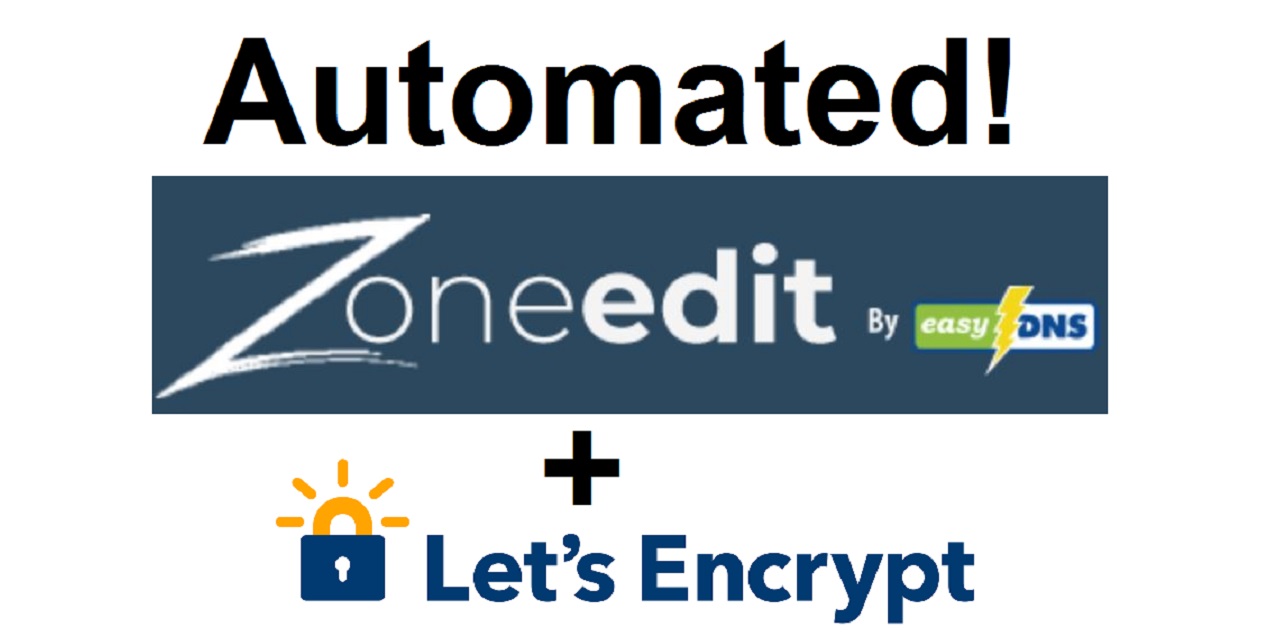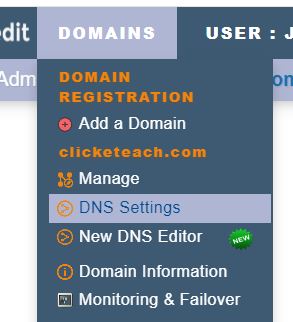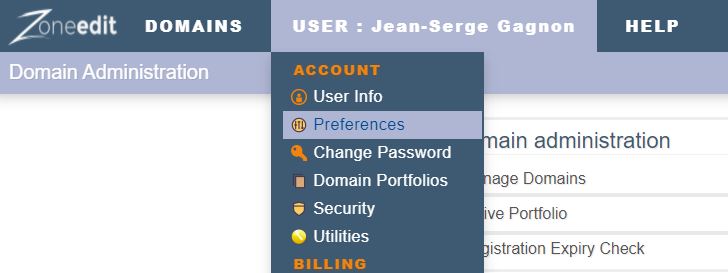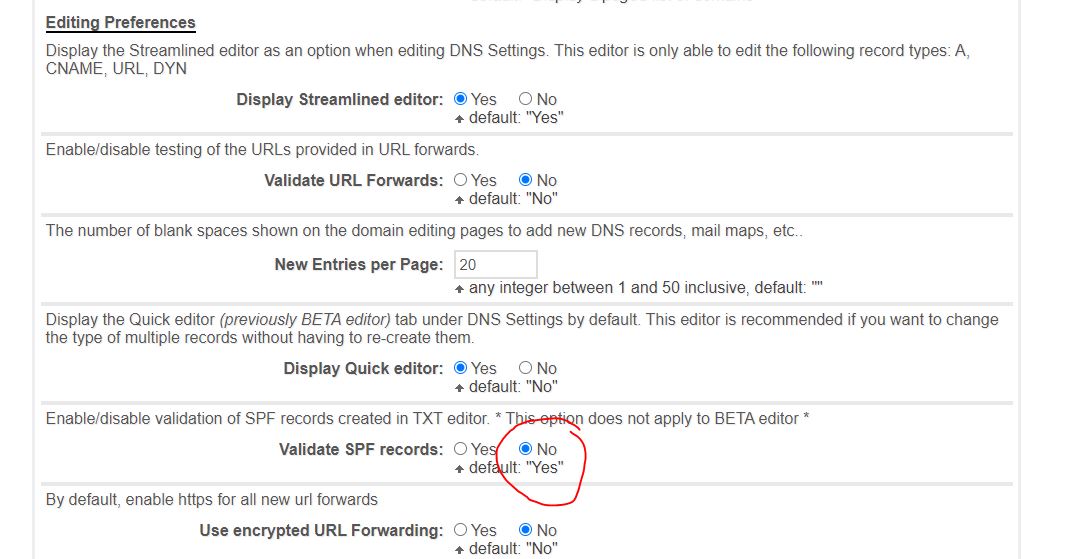Scripts to enable automated ssl certificate update dns-01 challenge with Linux, Zoneedit and Letsencrypt
This is a very basic script for my needs.
Enhancements are welcome via pull-requests but please understand that all I need it for is to generate wildcard domain ssl certificates using ZoneEdit dns provider.
There are 3 scripts:
- getcert-wilddns-with-zoneedit.sh
- certbot-dns-updater-with-zoneedit.sh
- zoneedit.sh
To use this, you need the following:
- A ZoneEdit hosted Domain
- the certbot-auto binary in the path or ~/certbot dir (or specify with CERTBOTDIR environment variable)
- Your ZoneEdit user and DYN token for EACH domain you want to update. (see below on where to get it)
- These scripts
- Go to main domain listing page
- Click the dns link for the domain
- Click the top level menu Domains link
- In domains pull down, click the DNS settings menu entry.
- In that page, find the DYN records section and click the wrench on top right.
- Scroll to bottom of page and find the dynamic authentication section and click te enable link.
- Copy the token value and put it in the /etc/sysconfig/zoneedit/YOURDOMAIN.cfg file (see below).
You just install this in a directory, as simple as this:
cd /path/to/dir/to/save/files
git clone git@github.com:jeansergegagnon/zoneedit_letsencrypt.git
cd zoneedit_letsencrypt
sudo ./getcert-wilddns-with-zoneedit.sh -d yourdomain.com
On first execution, this will fail and you will need to edit the /etc/sysconfig/zoneedit/YOURDOMAIN.cfg file and you can re-run the command which will complete
sudo ./getcert-wilddns-with-zoneedit.sh -d yourdomain.com
To automate this in cron, you can add the -a flag and the -e email value, for example this will check yourdomain.com cert every 10th and 20th of the month and update it if it is expiring soon:
CERTBOTDIR=/home/user/certbot
0 0 10,20 * * /home/user/code/zoneedit_letsencrypt/getcert-wilddns-with-zoneedit.sh -d yourdomain.com -a -e youremail@yourdomain.com
For example, when running this command:
sudo ./getcert-wilddns-with-zoneedit.sh -a -d sampledomain.com
you will see output similar to this:
[jsg@www zoneedit_letsencrypt]$ sudo ./getcert-wilddns-with-zoneedit.sh -a -d sampledomain.com
sudo ./certbot-auto certonly --agree-tos --manual-public-ip-logging-ok --non-interactive --manual --manual-auth-hook /home/jsg/code/zoneedit_letsencrypt/certbot-dns-updater-with-zoneedit.sh --preferred-challenges dns-01 -d *.sampledomain.com -d sampledomain.com
Saving debug log to /var/log/letsencrypt/letsencrypt.log
Plugins selected: Authenticator manual, Installer None
Obtaining a new certificate
Performing the following challenges:
dns-01 challenge for sampledomain.com
Running manual-auth-hook command: /home/jsg/code/zoneedit_letsencrypt/certbot-dns-updater-with-zoneedit.sh
Output from manual-auth-hook command certbot-dns-updater-with-zoneedit.sh:
./zoneedit.sh -V -d sampledomain.com -n _acme-challenge -v 5FG4knUFW8eTOHGrPHexRZFFh5WtzM1kj-lQ-pR_Mn8 -i 0
Thu May 23 11:45:34 EDT 2019: Getting initial login cookies
https://cp.zoneedit.com/login.php
Thu May 23 11:45:34 EDT 2019: Logging in
https://cp.zoneedit.com/home/
Thu May 23 11:45:34 EDT 2019: Validating domain
https://cp.zoneedit.com/manage/domains/
https://cp.zoneedit.com/manage/domains/zone/index.php?LOGIN=sampledomain.com
Thu May 23 11:45:35 EDT 2019: Loading TXT edit page
https://cp.zoneedit.com/manage/domains/txt/
https://cp.zoneedit.com/manage/domains/txt/edit.php
Thu May 23 11:45:36 EDT 2019: Sending new TXT record values
https://cp.zoneedit.com/manage/domains/txt/edit.php
https://cp.zoneedit.com/manage/domains/txt/confirm.php
Thu May 23 11:45:38 EDT 2019: Confirming change succeeded
https://cp.zoneedit.com/manage/domains/txt/edit.php
OK: Successfully set TXT record _acme-challenge.sampledomain.com=5FG4knUFW8eTOHGrPHexRZFFh5WtzM1kj-lQ-pR_Mn8
Waiting for verification...
Cleaning up challenges
IMPORTANT NOTES:
- Congratulations! Your certificate and chain have been saved at:
/etc/letsencrypt/live/sampledomain.com/fullchain.pem
Your key file has been saved at:
/etc/letsencrypt/live/sampledomain.com/privkey.pem
Your cert will expire on 2019-08-21. To obtain a new or tweaked
version of this certificate in the future, simply run certbot-auto
again. To non-interactively renew *all* of your certificates, run
"certbot-auto renew"
- If you like Certbot, please consider supporting our work by:
Donating to ISRG / Let's Encrypt: https://letsencrypt.org/donate
Donating to EFF: https://eff.org/donate-le
Obviously, change the sampledomain.com to your domain in above exmaple command.
If you get an error about SPF validation failure and you know for a fact your SPF record is valid, you'll need to go disable the SPF validation check.
For example:
You must update your SPF record or attempts to send mail will result in a <b>
PERMERROR</b>
. For assistance building a SPF record use our <a href="http://www.spfwizard.com/" target="_blank">
easySPF Wizard</a>
. To disable checking of your SPF record visit your preferences page and disable SPF checking for your account.<br />
ERROR: No IPs detected in SPF!
First, go to your account Preferences:
Next, scroll down until you find the Editing Preferences section and turn off the SPF validation:
Then save and retry the certificate renewal.
Feel free to email me at jeanserge.gagnon@gmail.com for any questions or comments and fork this project to submit any pull requests. I will be happy to review and approve any changes that make this code even more useful to others.








